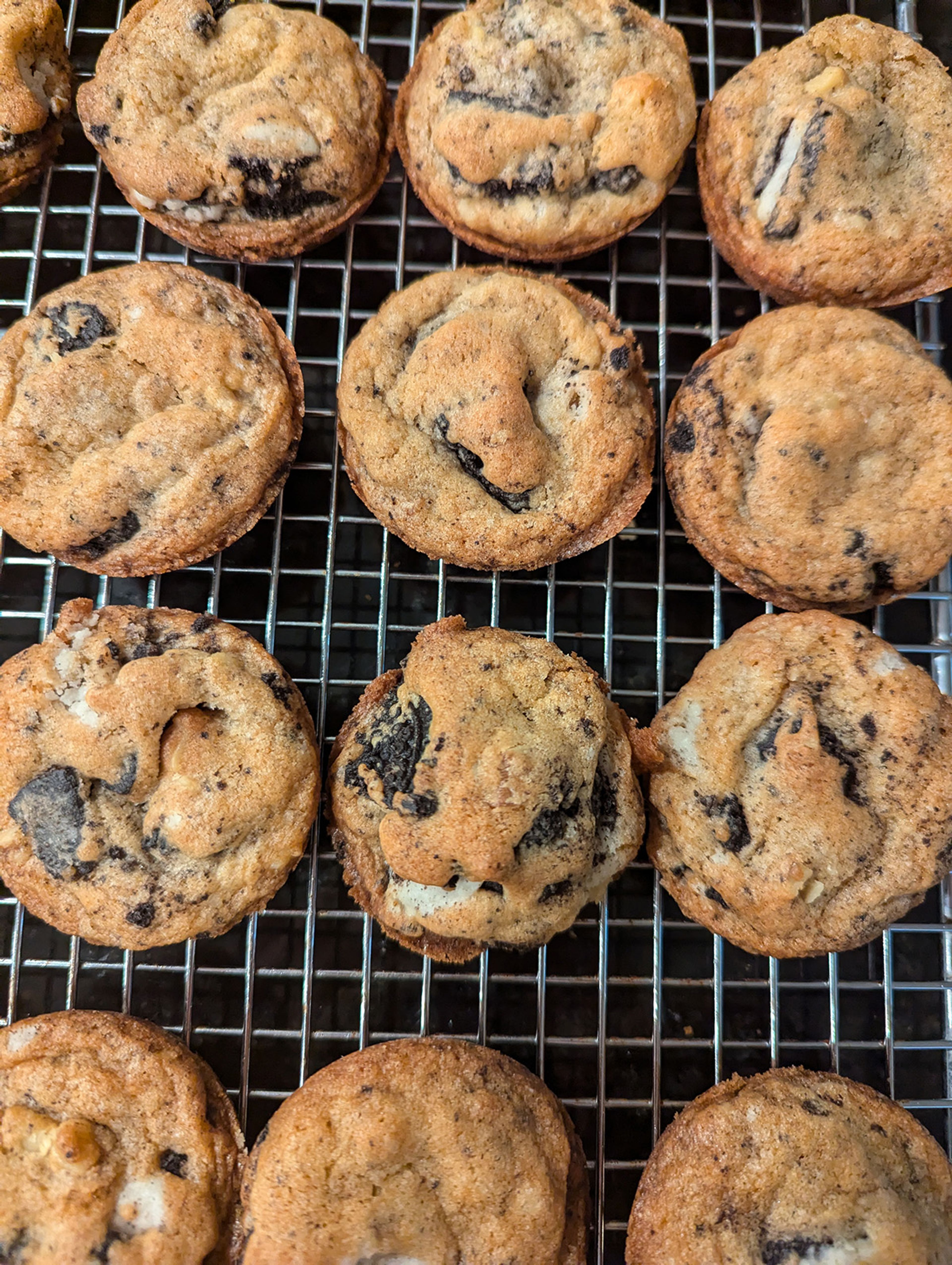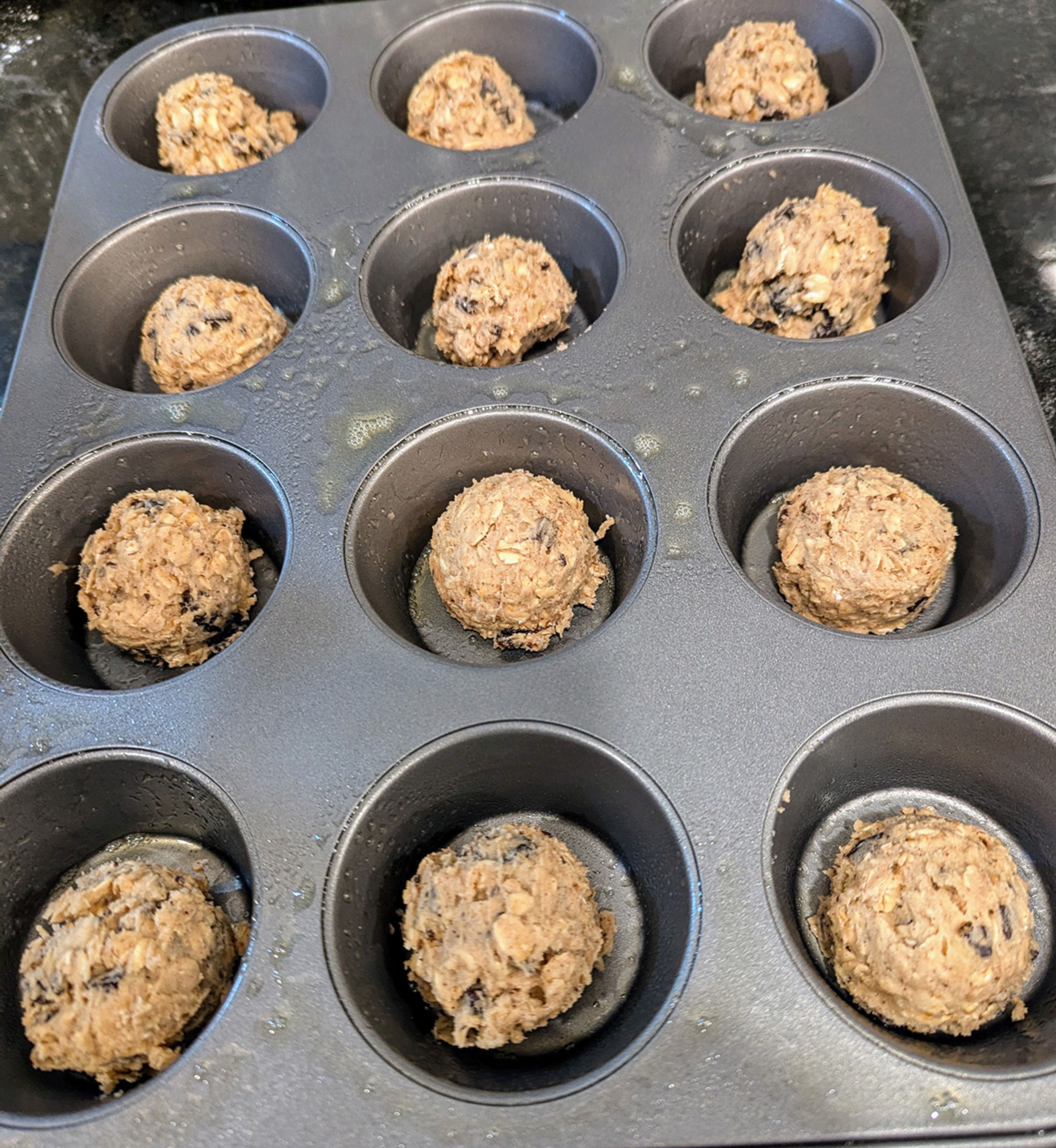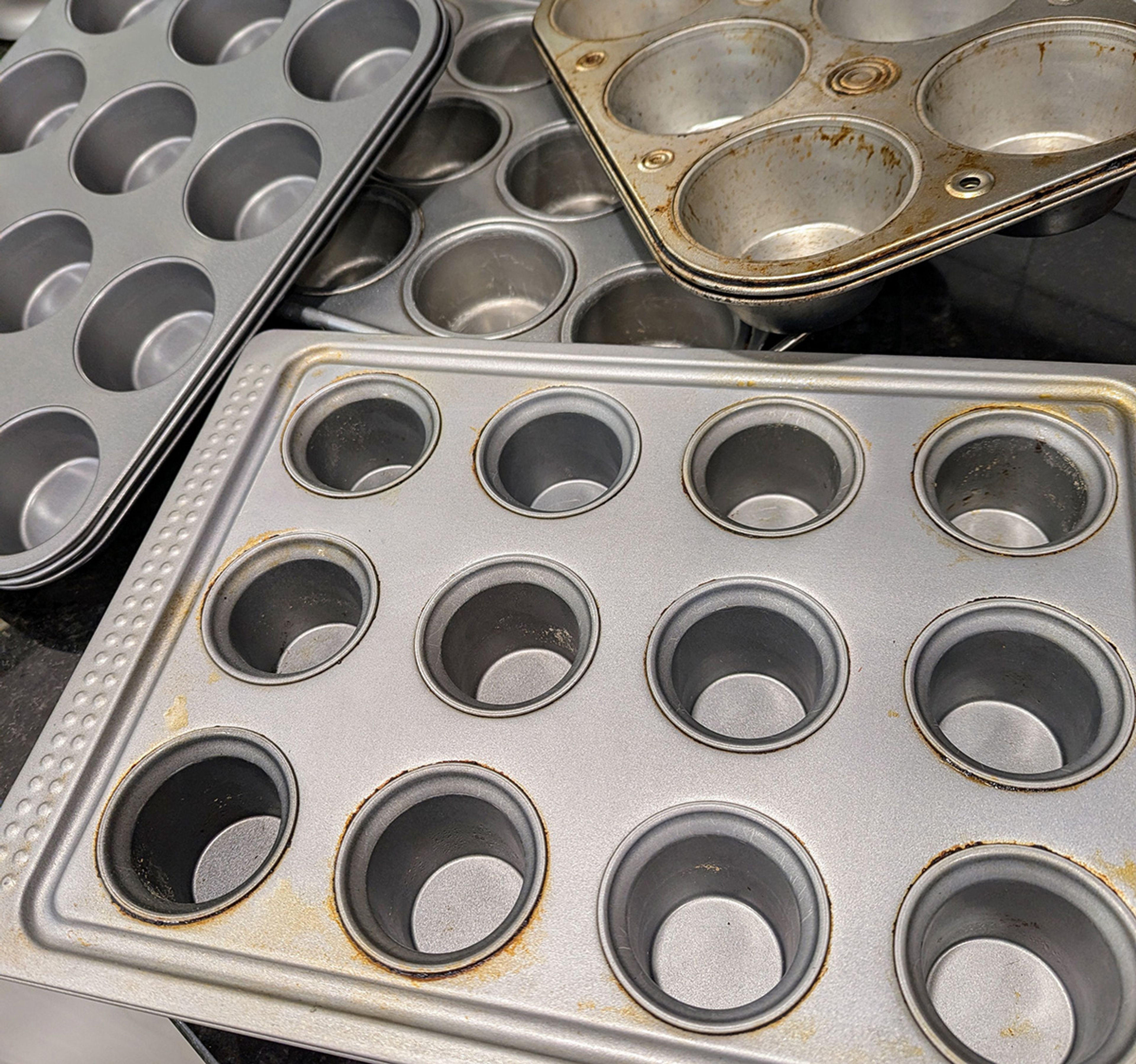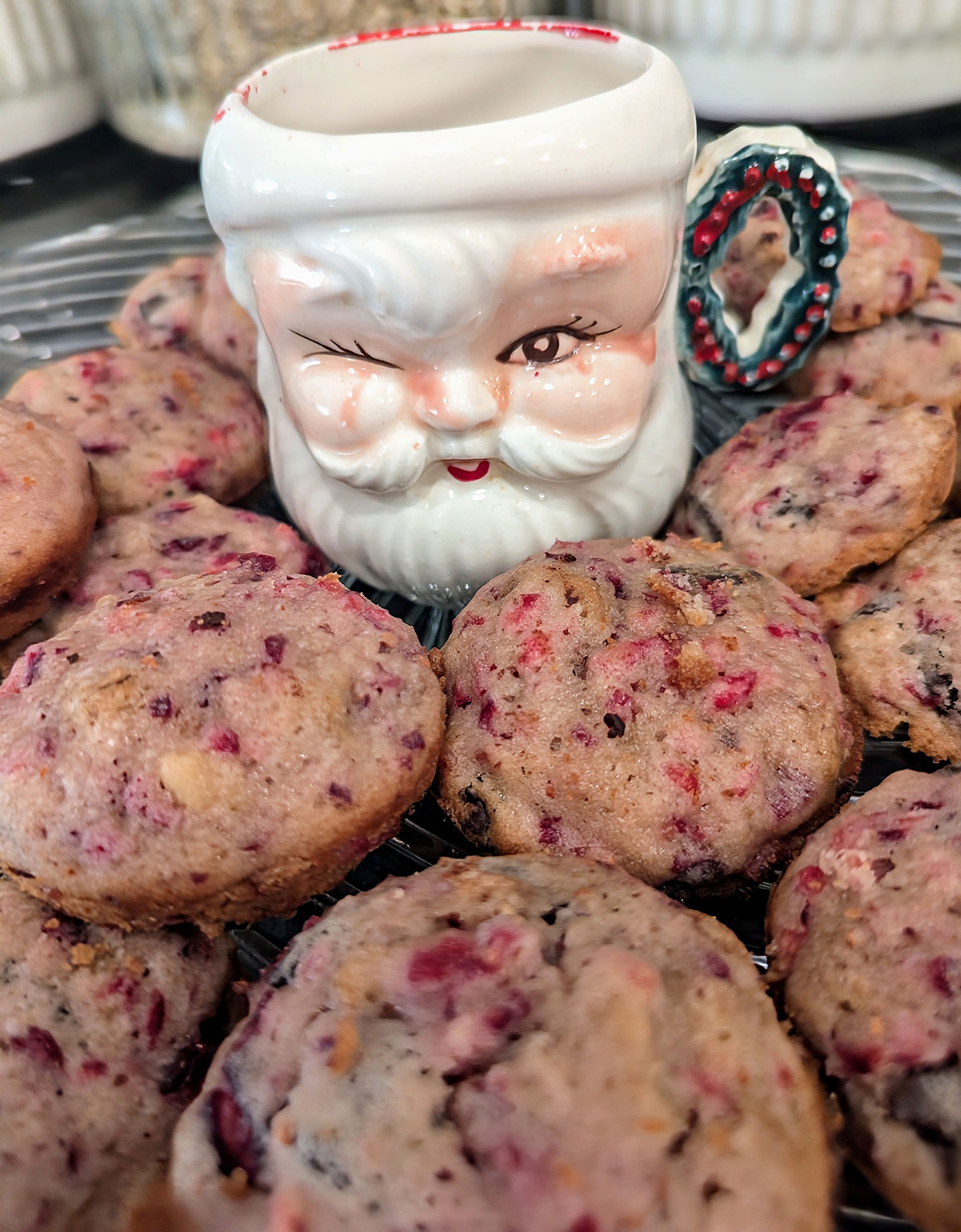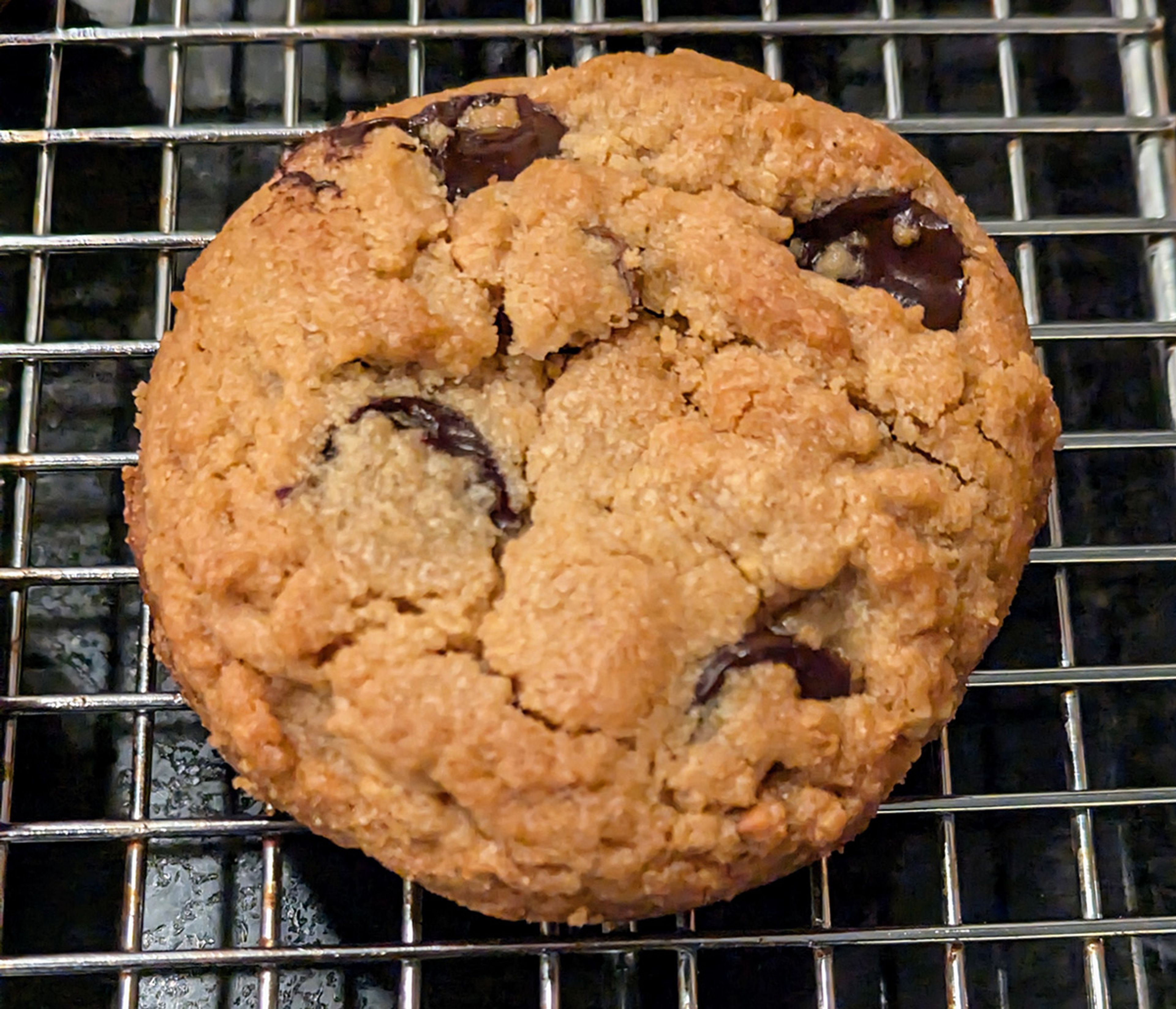Most culinary creations were concocted on purpose, but not a few have been developed solely by accident. Cases in point include pink lemonade, brownies, popsicles, the French Dip sandwich, Worcestershire sauce and gooey butter cake.
Perhaps the greatest unintentional culinary breakthrough of them all, however, occurred back in 1938 at the Toll House Inn in Whitman, Massachusetts, when Ruth Wakefield, hoping to enhance her butter cookies, chopped into bits a bar of Nestle's semi-sweet chocolate, folded them into her dough and assumed they would melt during baking. Of course, to the delight of millions ever after, they didn’t. And, thus, America’s favorite cookie, the chocolate chip cookie, was born.
Actually, according to sales figures, the Oreo is the country’s favorite cookie, just ahead of the chocolate chip. But it’s not a fair comparison. Oreos are typically store-bought; hardly anyone makes them at home. The Toll House cookie, by contrast, is often homemade. (For those torn between the two, The Red Gate Bakery in New York’s East Village has already garnered the attention of the New Yorker magazine with a cookie studded with Oreo bits rather than chocolate morsels.)
The Toll House Cookie has become so popular that some cooks have had the temerity to try to improve it. You’ll find nearly 150 million recipes for better versions on the Internet, many of them claiming to be the best ever. For example, recently the folks at the King Arthur Bakery in Vermont released a new recipe for chocolate chip cookies, which they anointed the best recipe of this year. It requires a tangzhong “starter” (one of the secrets to Japanese milk bread) and refrigerating for 24 to 72 hours before baking.
I might opt for a bag of Famous Amos before going to all that trouble. But I have discovered a technique to improve the chocolate chip, or any cookie for that matter, that doesn’t require uncommon ingredients or unusual mixing methods. Bake them in a muffin pan.
Ever since Nathaniel Waterman patented the classic muffin pan, made of cast iron, in 1859, people have been coming up with alternative ways to use it besides baking muffins — ranging from large ice cubes to poached eggs to mac and cheese bites to giant peanut butter cups to mini cheesecakes and even office supplies organizers. But not many of us thought about baking cookies in a muffin pan until cookbook author Dorie Greenspan promoted the idea in her most recent work.
If you bake cookies in a muffin pan, they’ll obviously be uniform in size and perfectly round (ideal for sandwich cookies), making them a little fancier. The advantages to the muffin pan, however, go beyond appearance. Since the cookies can’t spread beyond the confines of the pan, they tend to be a bit thicker and therefore fudgier in the middle. In addition, the muffin pan produces more caramelization on the bottom and sides of a cookie and crispier edges. You’ll probably have to increase the baking time for muffin pan cookies, but otherwise just about any cookie dough will work, including brownie and blondie batters.
This holiday season, try this technique and discover how a pan designed for muffins can make a very smart cookie.
Muffin Pan Peanut Butter Chocolate Chip Cookies
Which is better, a peanut butter cookie or a chocolate chip cookie? This recipe, adapted from Sally’s Baking Addiction, obviates the need for a decision. It’s both.
• 2 1/2 cups flour
• 1 teaspoon baking soda
• 1 teaspoon baking powder
• 1/2 teaspoon salt
• 1 cup softened butter
• 1 cup sugar
• 3/4 cup brown sugar
• 2 eggs
• 2 cups creamy peanut butter
• 2 teaspoons vanilla
• 2 cups chocolate chips
Whisk together flour, soda, powder, and salt. Cream butter and sugars at medium speed until smooth. Beat in eggs. Add peanut butter and vanilla and beat on high until incorporated. Mix in dry ingredients until combined. Fold in chocolate chips. Cover and chill one hour. Scoop 2 tablespoons dough into cavities of jumbo muffin tins which have been sprayed with cooking spray, pressing down with fingers to flatten slightly. Bake at 350 degrees for 15 to 17 minutes or until edges are lightly browned but centers remain soft. Cool 12 minutes before removing from pan.
Tom Harte’s book, “Stirring Words,” is available through KRCU, 90.9 FM where “A Harte Appetite” airs Tuesdays at 7:42 a.m. and 5:18 pm. Call 651-5070. Contact Tom at semissourian.com or at the Southeast Missourian, P.O. Box 699, Cape Girardeau, Mo., 63702-0699.
Connect with the Southeast Missourian Newsroom:
For corrections to this story or other insights for the editor, click here. To submit a letter to the editor, click here. To learn about the Southeast Missourian’s AI Policy, click here.


